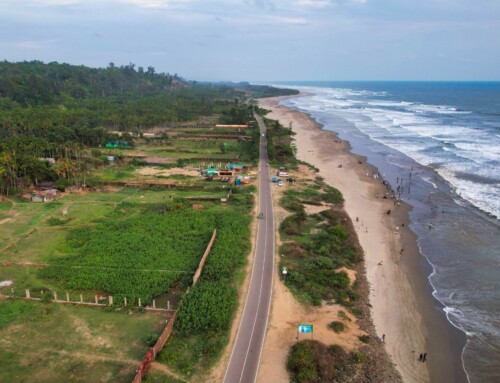Project Description
Building Climate Change Resilience in Asia’s Critical Infrastructure
Donor/Partner: Asian Development Bank (ADB) | Duration: 2017-2020 | Location: South Asia and Southeast Asia (including pilot activities in Indonesia, Sri Lanka and Vietnam)
Due to its vast and varied geography, Asia will experience most of the projected climate change impacts, particularly the increased risk of submergence, coastal flooding, and coastal erosion in coastal systems and low-lying areas. Inland ports, seaports, roads, rail, airports, energy and water supply, energy distribution, stormwater and sewerage systems and other infrastructure assets are highly sensitive to slow-onset climate change. This includes gradual increases in air temperature and sea levels. They are equally vulnerable to such extreme events as flooding from heavy precipitation, high winds, and storm surges. A detailed understanding of the impacts of climate change on critical infrastructure is of great importance, since it can inform the continued and sustainable development of ADB’s developing member countries (DMCs) in South Asia and Southeast Asia.
The ADB has commissioned the joint venture between ICEM – International Centre for Environmental Management, the Asian Disaster Preparedness Center (ADPC), and Philkoei International to implement TA 9191: Building Climate Change Resilience in Asia’s Critical Infrastructure.
The project will help to address emerging development challenges identified in the 2014 midterm review of ADB’s Strategy 2020 and meet an ADB priority to scale-up support for climate-resilient development in its DMCs. Results will also inform ADB’s preparation of a long-term strategic framework to succeed Strategy 2020, will support ADB’s efforts to scale up climate-resilient investments in the region and to meet its annual climate adaptation finance target of USD2 billion by 2020. At completion, ADB and DMCs will have a fuller understanding of the actions and innovation needed to make critical infrastructure in South Asia and Southeast Asia more resilient to climate change.
Aims:
To increase knowledge, promote innovation and good practice, and identify priorities for scaling up climate resilient investments in the Asia region. These will be achieved through the following cluster of activities with a focus on transport, energy and water sectors in South Asia and Southeast Asia:
- 1. Identifying critical infrastructure;
- 2. Assessing the risks and vulnerability of critical infrastructure to projected climate change; and
- 3. Identifying and assessing policy, technical, financial and ecological options for addressing climate risks and vulnerability of critical infrastructure.
Key outputs:
- Output 1: An inventory of current and planned critical infrastructure in South Asia and Southeast Asia, focusing on road and water transport, conventional energy generation and hydropower, and water supply and flood protection subsectors in both rural and urban areas;
- Output 2: Assessments of the vulnerability of existing and planned critical infrastructure to projected climate change in South Asia and Southeast Asia, including detailed analyses in a selection of pilot countries; and
- Output 3: A set of policy, regulatory, financial, technical and ecological options including climate resilience design standards for enhancing climate resilience of critical infrastructure.
Project partners:
- ADPC: The Asian Disaster Preparedness Center (ADPC) is an independent regional technical organization that works to build the resilience of people, infrastructure and institutions to disasters and climate change impacts. Established in 1986, ADPC now has country offices in Bangladesh, Myanmar and Sri Lanka, project offices in Nepal, Pakistan, Philippines and Mongolia, and project activities in 30 countries. ADPC has grown and diversified its expertise across social and physical sciences to support sustainable solutions for risk reduction and risk management across a broad range of specialist areas.
- PKII: Philkoei International (PKII), in partnership with Nippon Koei (NK), has conducted urban development projects throughout Asia. Projects have encompassed various development sectors in the Greater Mekong Subregion including roads and bridges; drainage and sanitation; solid waste management; urban infrastructure; agricultural development and irrigation; social and environmental development and financial and economic assessment.








